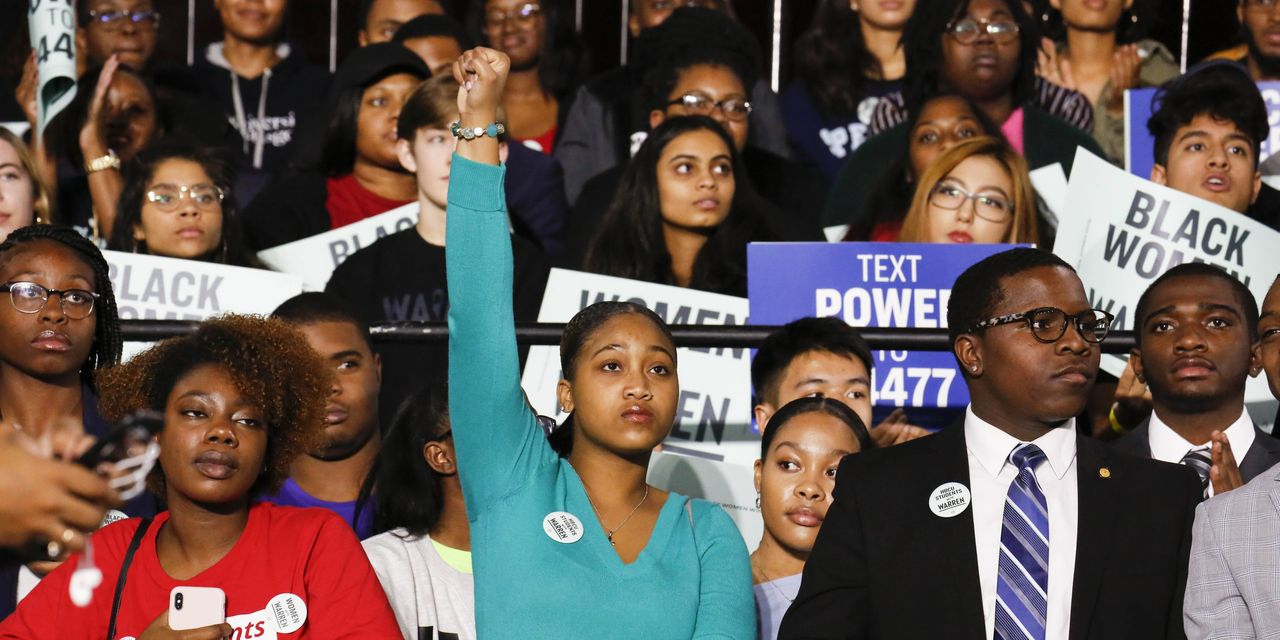Beta Male Syndrome and the Pussification of America
Reassessing Masculinity: The Unintended Consequences of Modern Movements in America
Beta Male Syndrome and the Pussification of America
In the evolving saga of American culture, a new chapter is unfolding. Labeled "Beta Male Syndrome and the Pussification of America," it draws curtains on the era of unfiltered masculinity, directing spotlights onto a stage shaped by radical feminism and liberal policies. The intent might have been noble, but the consequences are debatable.
1. The Employment Arena: When Affirmative Becomes Over-Corrective
Modern workplaces are increasingly shifting their focus towards inclusivity and diversity. A paradigm that began as a righteous quest to level the playing field, ensuring equal opportunities for everyone, has in some cases, been taken to an extreme where the lines between fairness and hypersensitivity blur. Affirmative action, a program initially designed to address past injustices and marginalization, sometimes bypasses meritocratic values, prioritizing demographics over genuine competence. The pendulum, it seems, has swung from an environment driven by pure competition and ambition to one dominated by an over-cautious approach, replete with hesitations and the apprehension of potential backlash.
One of the most glaring and debated examples of this shift in corporate dynamics is the 2017 controversy surrounding James Damore's memo at Google. To provide a detailed overview: Damore, a software engineer at the tech giant, penned an internal document titled "Google’s Ideological Echo Chamber." In this controversial memo, Damore raised concerns over Google's diversity programs and posited that biological differences might explain the underrepresentation of women in tech roles. He argued that Google's attempts at enforcing diversity could be silencing dissenting views, creating an echo chamber where only certain perspectives were welcomed.
The ripple effects of the memo were swift and profound. The internal document soon leaked to the public, causing an uproar both within and outside the tech community. Critics denounced the memo as sexist and regressive, arguing that it perpetuated harmful gender stereotypes. Supporters, on the other hand, saw it as a brave take against the prevailing orthodoxy of Silicon Valley, valuing Damore's call for open dialogue on the topic.
In the ensuing turbulence, Google decided to terminate Damore's employment, citing that his memo advanced "harmful gender stereotypes." The dismissal further polarized opinions. Many saw Google's decision as evidence of the very echo chamber Damore critiqued, arguing that his firing stifled open discourse on sensitive topics. Others felt it was a just action against perpetuating harmful ideologies within a diverse workspace.
The Damore incident stands as a testament to the tightrope corporations find themselves walking today. It poses tough questions: How does a company genuinely promote diversity and inclusion without suppressing contrarian views? Where should the line be drawn between fostering a safe work environment and ensuring freedom of thought and speech?
In essence, the Damore case wasn't just about a memo. It underscored deeper, broader concerns about the evolving corporate ethos, particularly in fields long dominated by a single gender or demographic. The challenge for modern corporations is to ensure genuine inclusivity, without inadvertently sidelining merit or stifling open dialogue.
2. The Classroom Chronicles: Where Boys Become... Spectators?
Remember the good old days when schoolyards echoed with the sounds of playful banter, a tad bit of roughhousing, and yes, competition? Well, it seems modern education, in its infinite wisdom, decided that these were outdated constructs. Today, the pedagogical playbook seems to idolize cooperation to the point where competition has become that awkward relative we'd rather not invite to family gatherings.
For boys, many of whom come factory-fitted with a dash of boisterousness and a pinch of competitiveness, the contemporary classroom feels less like a nurturing space and more like a minefield. "Sit still, don’t be too loud, and for heaven's sake, don't be too... male," seems to be the underlying message. Playful tussles on the playground? Misinterpreted as aggression. Spirited debates? Labelled disruptive. Schools might as well just start handing out "Best at Being Inconspicuous" awards.
Then there’s the newfound fetish for 'participation trophies.' Ah, the euphoria of receiving an award for just showing up! Because why bother instilling the notions of hard work, skill mastery, and merit when you can ensure every child feels “special”, regardless of effort or aptitude?
And just when you think it can't get more convoluted, higher education throws its hat into the ring. College campuses, traditionally considered havens of free thought, seem to have developed an allergy to due process, particularly when it comes to the murky waters of interpersonal relationships.
Take the 2014 saga at Columbia University, where the "mattress girl" made headlines. Emma Sulkowicz, in an act that oscillated between protest and performance art, carried a mattress around, claiming the university bungled her sexual assault complaint. Meanwhile, Paul Nungesser, the accused, found himself in the unenviable position of proving his innocence in the court of public opinion, even after the university cleared him. Makes one wonder if universities have traded their role as centers of academic excellence for amateurish courtroom dramas.
The essence of it all? Our educational systems, in a bid to evolve, may have missed the plot somewhere. While ensuring student safety and promoting inclusivity are paramount, perhaps it’s high time we reassessed the scales, lest we sideline merit and trivialize genuine justice.
3. Entertainment: From Hero to Zero
The transformation within the entertainment industry, notably Hollywood, is palpable. Classic films were replete with rugged male protagonists, characterized by their decisiveness, strength, and at times, flawed humanity. These characters, like John Wayne in "True Grit" or Sean Connery's James Bond, stood as paragons of traditional masculinity. They made decisions, faced the consequences, and showcased resilience.
Fast forward to today, where our cinematic landscape often presents a different breed of male characters. Consider contemporary sitcoms. The man is often the comic relief, depicted as bumbling, clueless, and in need of constant guidance, be it in "Modern Family," "The Big Bang Theory," or even the "King of Queens." Such portrayals, while humorous, perpetuate a stereotype of the inept male, needing female intervention for the simplest tasks.
The world of superhero movies, a genre that one would assume celebrates classic masculine virtues, is not immune. While female empowerment in this domain is genuinely applaudable (think "Wonder Woman" or "Captain Marvel"), it sometimes comes at a cost. Male superheroes are increasingly portrayed as conflicted, riddled with self-doubt, and often requiring a feminine touch or intervention to rediscover their purpose, as seen with Thor in "Avengers: Endgame."
4. Politics: The Emasculation Emancipation
The arena of politics has always been a reflection of societal norms and values. Historically, male politicians were often revered for their decisiveness, leadership, and ability to "stand their ground." Figures like Teddy Roosevelt, with his Rough Rider persona, embodied the assertive and at times, aggressive stance that was synonymous with political leadership.
Yet, as the 21st century unfolds, the political stage appears to have altered its script. Masculinity, especially in its traditional form, is under the microscope. Assertiveness can be quickly labeled as aggression. A firm stance can be construed as obstinacy. The transformation of political discourse, especially in platforms like Twitter, further fuels this narrative. Sound bites, often lacking nuance, serve as catalysts for debates around "toxic masculinity."
For a more contemporary analysis, consider the treatment of figures like Brett Kavanaugh during his Supreme Court nomination process. The hearings were a battleground, not just of legal prowess but of gender dynamics. Every emotional display by Kavanaugh was dissected, with some viewing his assertiveness as evidence of an inherently aggressive male temperament.
The dichotomy extends to other figures. Bernie Sanders, often animated in his speeches, has been both celebrated for his passion and critiqued as "shouty" or overly aggressive. In contrast, more reserved figures like Joe Biden face scrutiny for moments of tactile warmth, quickly labeled as invasive or inappropriate in our evolving cultural climate.
Navigating the Tightrope
The transformations in entertainment and politics reflect broader societal shifts. While progress in gender dynamics is necessary and commendable, it's vital to ensure that in our quest for evolution, we don't inadvertently suppress or malign the varied and rich tapestry of masculinity. Balancing appreciation with critique is the nuanced dance of modern America.



.png)


.png)
Comments